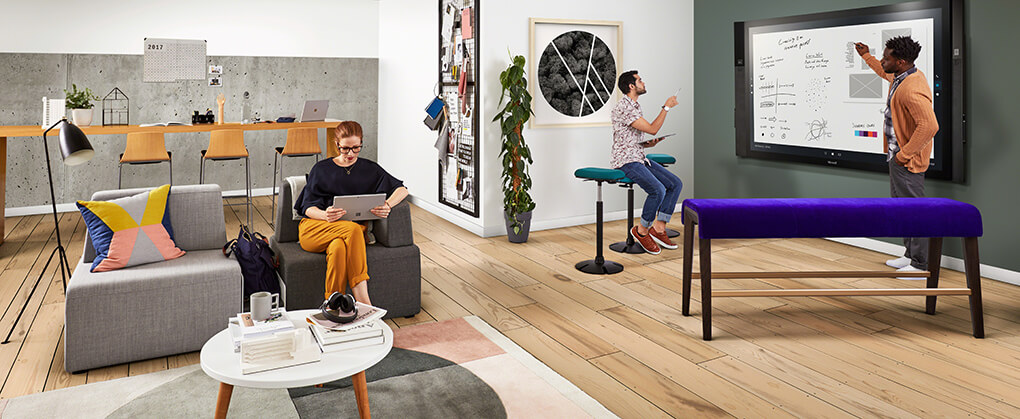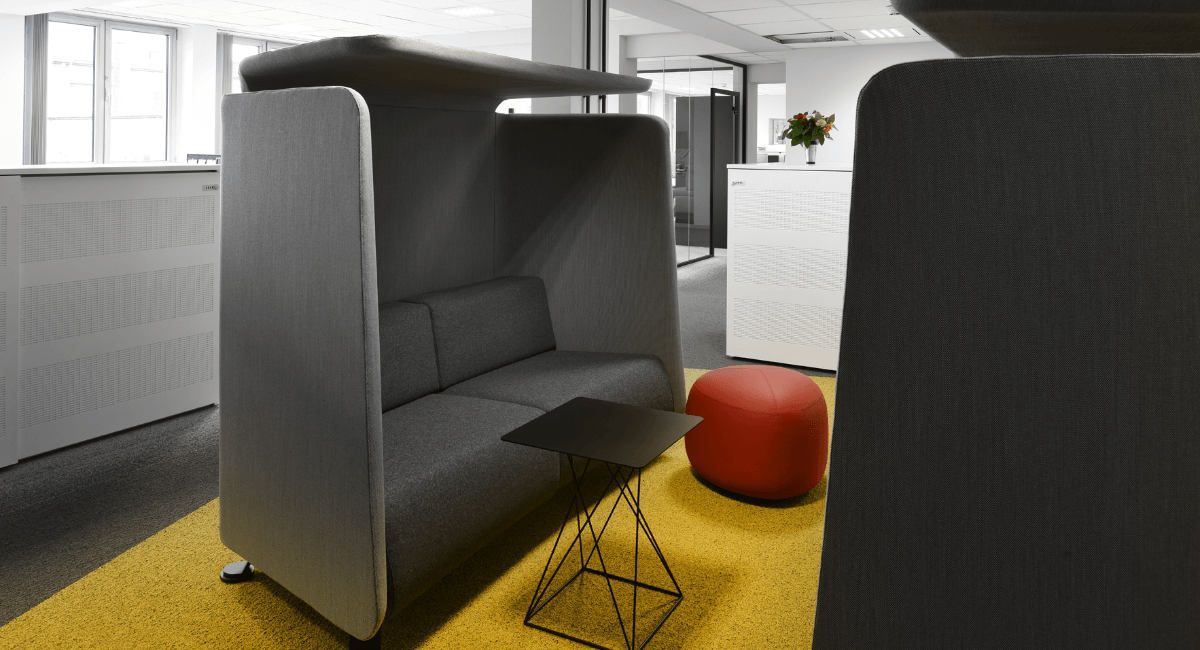
Alexis D’Archambeau
Business Development Director at Alternativ Workspace Solutions
INTERVIEW I ASK THE EXPERT!
Alexis D’Archambeau on the Workplace Revolution, AI and Technology
At Alternativ, we wholeheartedly embrace the transformative impact of technology. We’re eagerly anticipating the myriad of opportunities it brings. In this interview, Alexis D’Archambeau, Business Development Director at Alternativ, elucidates how these changes will tangibly shape our industry and redefine the workplace. Let’s embark on this journey to discover the boundless potential of AI and technology in reshaping our workspaces.
Could you share your insights on the future of workplace design in light of the transformative power of AI and technology?
Alexis D’Archambeau: The convergence of AI and cutting-edge technology has opened up unprecedented vistas of possibility. We stand on the cusp of a genuine revolution in how we conceive, shape, and utilize workspaces. The integration of these technologies will not only enhance efficiency but also completely redefine the very essence of what a workplace means. It’s a thrilling era of innovation and adaptability, and I’m enthusiastic about what lies ahead.
Can you elaborate on how intelligent, adaptable environments will shape the workplaces of tomorrow?
Alexis D’Archambeau: Smart offices will become the norm. AI-driven building management systems, coupled with the Internet of Things, will optimize every aspect of the workspace – from energy consumption to air quality. These environments will ensure that employees work in spaces that maximize comfort and productivity.
Imagine a smart office equipped with advanced sensors and AI-driven systems. These technologies continuously monitor various aspects of the workspace. For instance, if a room is unoccupied, the lighting and temperature will automatically adjust to conserve energy. Moreover, the ventilation system will respond to fluctuations in air quality, ensuring a fresh and comfortable atmosphere. These seamless adjustments not only enhance the well-being of employees but also contribute to a more sustainable and cost-effective workplace. It’s a future where the office environment adapts intuitively to meet the needs of its occupants, creating an optimal setting for productivity and creativity.
Hyper-personalisation will be one of the key features of these intelligent workspaces. How do you see AI-enabled personalisation transforming the way employees interact with their workspace?
Alexis D’Archambeau: Picture this: An employee walks into their workspace. The lighting adjusts to their preferred level of brightness, the desk automatically rises to the perfect standing height, and their favorite background music starts playing softly in the background. The temperature is set to their ideal comfort level, and even the scent diffuser releases their preferred calming fragrance.
Moreover, their digital workspace is finely tuned to their work habits. The most frequently used applications and documents are intuitively organized, and reminders for important tasks pop up exactly when needed. The AI assistant understands their scheduling preferences, blocking off focus time when they’re most productive and scheduling meetings at times that align with their natural rhythms.
In essence, every aspect of the workspace, from the physical environment to the digital interface, is tailored to the individual’s preferences and work habits. This level of personalization not only boosts productivity but also fosters a sense of ownership and well-being, as employees feel truly at home in their workspace.
These major changes will not be possible without data. How will data influence office design decisions in the future
Alexis D’Archambeau: Data will be invaluable. Analytics will guide evidence-based decisions, influencing space allocation and layout adjustments for maximum efficiency. Heatmaps and utilization reports will be essential tools in optimizing resources and fine-tuning the work environment.
Imagine a scenario where every square meter of office space is a treasure trove of information. Through advanced analytics, we can gain profound insights into how employees interact with their environment. Heatmaps, for instance, provide a visual representation of high-traffic areas, showing where employees naturally gravitate. Utilization reports reveal which spaces are frequently used and at what times.
With this wealth of information, we can make evidence-based decisions that truly optimize the workspace. For example, if the data indicates that a particular meeting area is consistently underutilized, we can repurpose that space to better serve the needs of the employees. Conversely, if certain collaborative spaces are in high demand, we can expand and enhance those areas to facilitate more effective teamwork.
In essence, data becomes the linchpin of strategic decision-making in office design.
What about virtual reality and augmented reality? How do you think AR and VR technologies reshaping the way employees engage with their physical surroundings?
Alexis D’Archambeau: AR will overlay digital information onto the physical environment, providing real-time guidance. VR will create immersive meeting spaces, allowing remote employees to participate as if they were physically present. These technologies will revolutionize how we perceive and interact with the office space.
Furthermore, as an Office Design company, harnessing the power of VR can revolutionize how we engage with our clients. By creating virtual replicas of the proposed office spaces, we can offer clients an immersive preview of their future workspace. They can virtually walk through the layout, experience the flow of the environment, and get a genuine feel for the design concepts. This not only provides our clients with a tangible understanding of our design vision but also allows for real-time adjustments and refinements based on their preferences and feedback. It’s a game-changer in the design process, ensuring that our clients are not only satisfied but actively involved in shaping their ideal workspace.
It’s clear that with the integration of AI and technology, the office as we know it is set for a remarkable transformation. What are the key words that will define tomorrow’s world?
Alexis D’Archambeau: If I were to distill the essence of tomorrow’s world into keywords, they would be: Flexibility, Personalization, Connectivity, Efficiency, and Well-being.
These keywords will define not only the future of workspaces but also the future of work itself. It’s an exciting era of possibilities, where technology acts as an enabler, empowering us to create environments that enhance productivity, creativity, and overall quality of life in the workplace.




